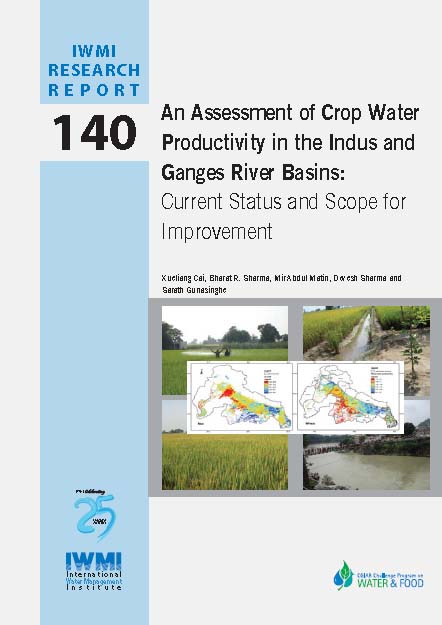/topics/irrigation
Irrigation
Future water solutions for India - a paper by Himanshu Thakkar in the Palgrave Development journal
Posted on 13 May, 2011 03:58 PMThis paper by Himanshu Thakkar published in the journal Development looks at the daunting challenges that future water demand places on India a
An analysis of West Bengal Ground Water Resources (Management, Control and Regulation) Act 2005
Posted on 11 May, 2011 02:17 PMIntroduction
Towards a Kisan Swaraj Policy based on people's control over agricultural resources
Posted on 11 May, 2011 07:10 AM This pan-Indian outreach effort involved dialogues with tens of thousands of citizens, demanding that the nation should devote urgent attention to the continuing agricultural crisis and allocate highest priority to the agriculture sector, ending decades of neglect.
This pan-Indian outreach effort involved dialogues with tens of thousands of citizens, demanding that the nation should devote urgent attention to the continuing agricultural crisis and allocate highest priority to the agriculture sector, ending decades of neglect.
Addressing the water crisis in Gujarat, India - A report by Columbia Water Center
Posted on 28 Apr, 2011 05:06 PMA large number of farmers and well operators were interviewed in the process. Data was also collected from the power utility that supplies power to this region. Along with this the climatic peculiarities of the region, farmers and well users perceptions on ground water management and use were also collected.
History of irrigation in Bihar – Ancient, British and upto Pre-plan Period – A report by the Water and Land Management Institute, Patna
Posted on 23 Apr, 2011 10:29 AMIrrigation is being practiced there since ancient times dating back to Kautilya, who lived in Patliputra (now Patna), which was the capital of the mighty Mauryan empire (400 BC). Kautilya had laid down the principles on rainfall and irrigation in his famous book Kautilya Arthasashtra.
Irrigation system operation practices - A handbook by Central Water Commission (1990)
Posted on 21 Apr, 2011 10:36 PMFor increasing agricultural productivity from existing irrigation systems, improved operation of the systems coupled with timely maintenance of the systems has a major role to play.
An assessment of crop water productivity in the Indus and Ganges river basins: Current status and scope for improvement – A research report by IWMI
Posted on 20 Apr, 2011 06:43 PM This approach is based on the integration of readily available remote sensing, national crop productivity and land use statistics and weather data.
This approach is based on the integration of readily available remote sensing, national crop productivity and land use statistics and weather data.
Comparing conventional and organic farming crop production systems - Inputs, minimal treatments and data needs - A research paper
Posted on 19 Apr, 2011 02:45 AMThe following article is based on a field experiment in International Crops Research Institute for the Semi-Arid Tropics (ICRISAT), where low cost farming systems that involve use of biological inputs obtained from the field is compared with conventional farming.
Further, the authors offer suggestions for future demonstration and verification experiments, to study the virtues of organic farming.
Lessons from non-chemical input treatments based on scientific and traditional knowledge in a long-term farming experiment - A research paper
Posted on 19 Apr, 2011 12:32 AM
Two of the four systems are low-cost farming methods which are based on traditional and scientific knowledge on using crop residues, farm-waste, compost, Gliricidia lopping, bacterial inoculants, and herbal extracts as nutrients to nourish the soil, and as biopesticides to manage pests.
The third system is conventional agriculture which is the "control" and receives chemical input as suggested by research institutions depending on crop type. The fourth is a combination of the first three.




